“The real voyage of discovery consists not in seeking new landscapes, but in having new eyes” - Marcel Proust
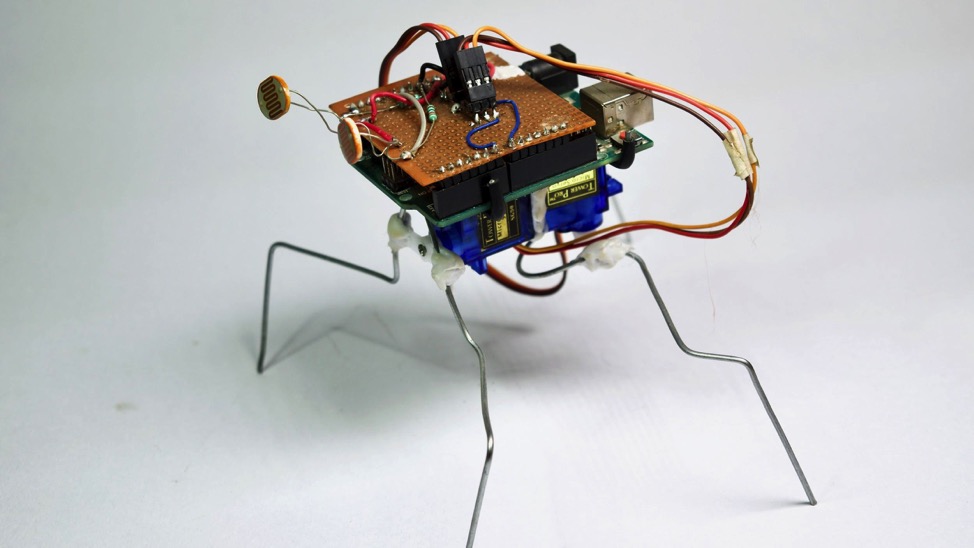
Robots built at a Gonzo robotics workshop, 2019
Lead:
Mandate
ArtScienceBLR is a public laboratory at the Srishti Institute of Art, Design and Technology.
Since 2009, it has functioned as one of India’s first artist led hackerspaces for artists, scientists, students and the general public.
(Art)ScienceBLR is a people’s laboratory for understanding and exploring the artistic, social and political implications of technologies, from computing to biotechnologies. Our work exists at the intersection of art-science and pedagogy, creating spaces of dialogue and interaction between artists, designers and scientists.
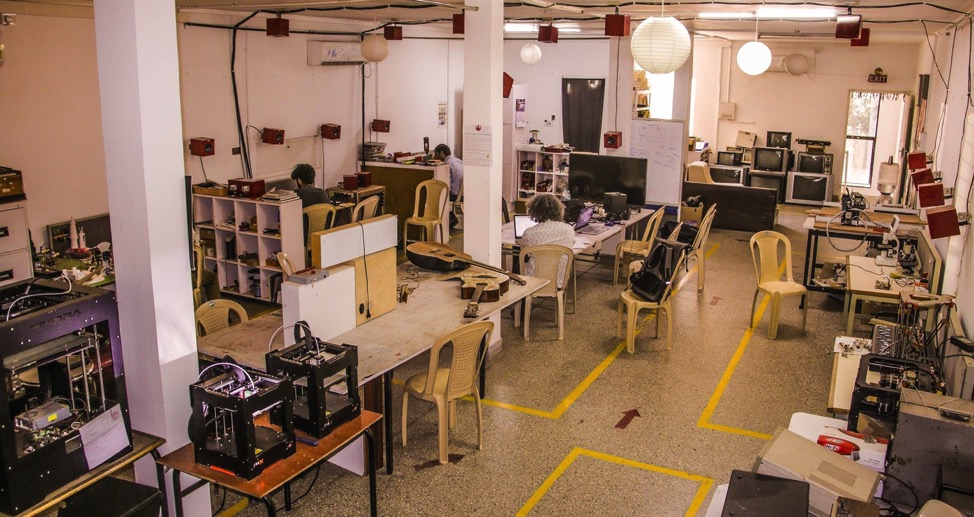
ArtScienceBLR lab, 2020
Ongoing Research / Focus Areas
At ArtScienceBLR we work with the larger community through conducting open workshops, residencies for artists and scientists, organising talks and field trips, designing publications and curating exhibitions. Our Hackerlab is always open to the general public. We offer access to an electronics laboratory, a DIY biology laboratory and a prototyping laboratory with access to the latest 3D printers, laser cutter, CNC machines, electronics and other fabrication tools. The Hacker lab also operates an online radio station:http://radio.artscienceblr.org Our work is ultimately grounded in the arts and we consider art practice to be the underlying conceptual framework for personal enquiry to develop a critical practice.
Selected Projects
Synthetic Biology Trilogy (2009-2011)The first three projects below are an exploration of the poetic promises and perils of synthetic biology. These projects address many ethical and philosophical questions of creating genetically altered, living machines. The fourth project, BIODESIGN FOR THE REAL WORLD, is an example of long term environmental research conducted along with our network of labs from different parts of the world.
Teenage Gene Poems (2009)
Teenage Gene Poems is a reimagining of genetic engineering from the perspective of a teenage poet. Working with scientists at the National Center for Biological Sciences in Bangalore, members of ArtScienceBLR created a micro-organism (E-COLI), that smells like rain. Teenage Gene Poems, harnesses a sequence of DNA called BBa_K221000, one of the first BioBricks produced by artists, that produces an enzyme called geosmin which is responsible for the smell of wet earth when it begins to rain.
This is an artistic investigation into the narrative and promises of synthetic biology. This project was awarded an honorary mention in the HYBRID ARTS category at ARS ELECTRONICA (2010). It was also awarded prizes at the International Genetically Engineered Machines Competition at MIT, USA (2009).
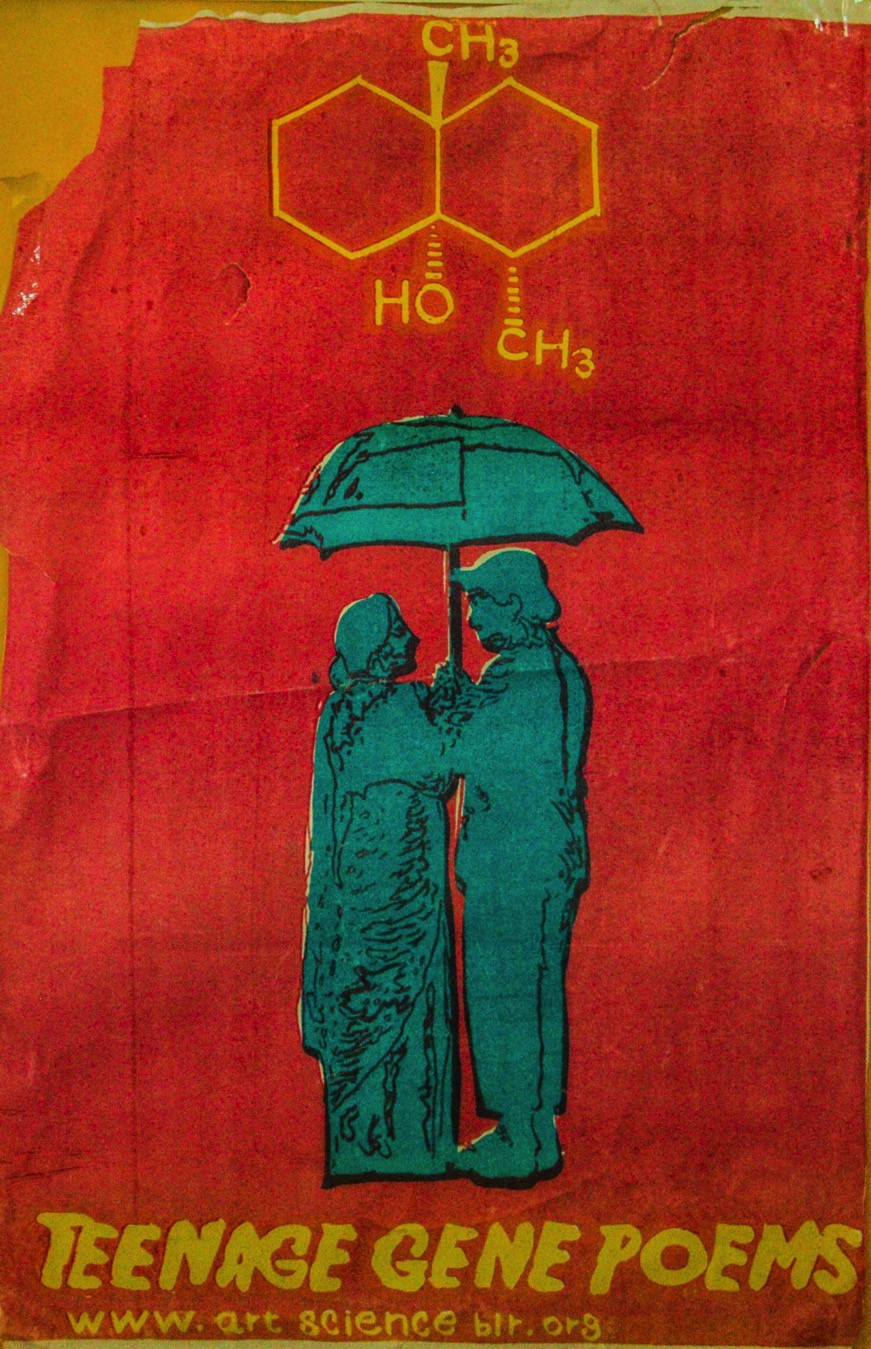
Synthetic/Post-Natural Ecologies (2010)
Synthetic/Post-Natural Ecologies (2010)
Synthetic/Post-Natural Ecologies is a project made along with Alexandra Daisy Ginsberg and James King that investigates the consequences of a synthetic ecology, an ecology in which organisms created in a techno-scientific environment interact with organisms in the wild.
C. elegans live on a diet of a variety of bacteria. E.coli being one of them. It is possible to hijack the neural functions of C.elgans with altered E.coli. The goal was to create biobricks that enable indirect engineering of C.elegans behavior mediated by the E.coli. This project was presented at the International Genetically Engineered Machines Competition at MIT, USA (2010)
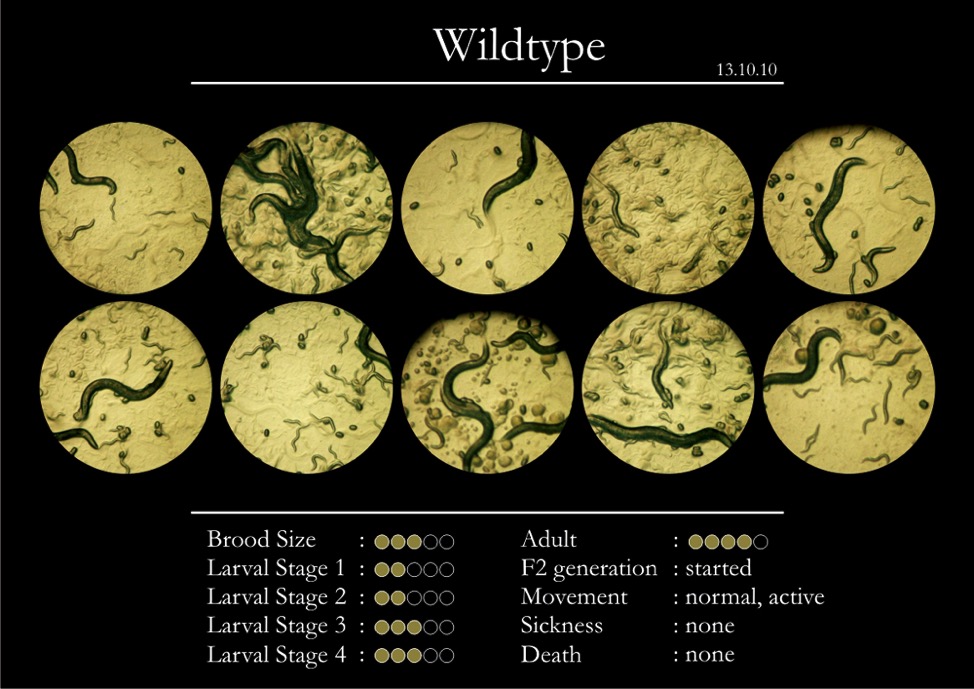
C-Elegans which have injested genetically modified E-Coli(2010
Searching for the Ubiquitous Genetically Engineered Machine(2011)
Searching for the Ubiquitous Genetically Engineered Machine (2011 along with the Center For Genomic Gastronomy), proposes alternate re-appropriations of the BioBrick, which are functional sequences of genes which are similar to LEGO blocks. These BioBricks may end up in our environment and may show up as bands in a gel electrophoresis (a method for separation and analysis of macromolecules) when soil samples are analysed. By imagining a world in which the BioBrick has become the accepted standard for synthetic biology, and where these engineered products are ubiquitous in our lives and environments, the samples we archive will serve as the baseline from which the subsequent extent of human influence can be measured.
Searching for the Ubiquitous Genetically Engineered Machine was awarded a prize for Best Human Practice at the International Genetically Engineered Machines Competition at MIT, USA (2011) and was the recipient of an honorary mention in the hybrid arts category of ARS ELECTRONICA (2012).
Biodesign for the Real World
BIO-DESIGN for the REAL WORLD explores how biology and biotechnology can be designed within social contexts. We ask what is good design in biology and biotechnology by going through design cycles to define, build, and field-test prototypes that require the integration of wetware, hardware, and software to visualise and address real world problems. Our current projects are derived from our common and local focus on water.
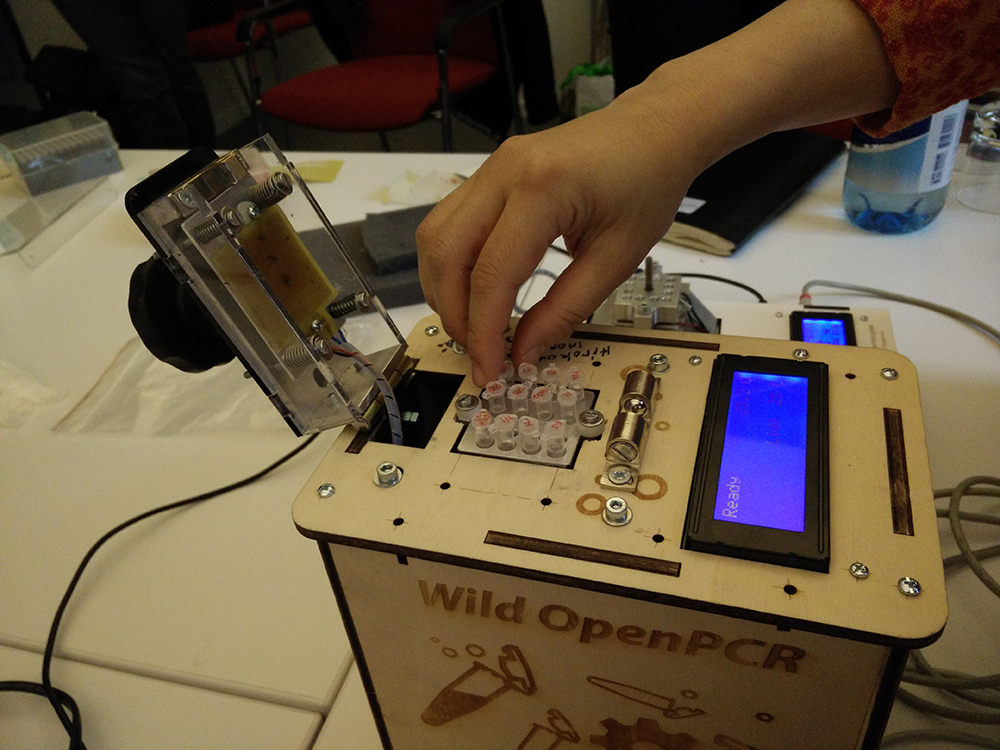
Dr. Sachiko Hirosue working with the GaudiLabs PCR, Biodesign for the real world(2017)
This research is conducted along with design students from the Srishti School of Art, Design & Technology, the Lifepatch citizen initiative in art, science and technology (Yogyakarta, Indonesia), and students at the School of Life Sciences at EPFL (Lausanne, Switzerland where we are housed in Hackuarium). We also work closely with National Centre for Biological Sciences (NCBS, Bangalore India), and Microbiology Laboratory of Agriculture Faculty of Universitas Gadjah Mada (Yogyakarta, Indonesia).The website for the project is at http://biodesign.cc and the wiki http://wiki.artscienceblr.org
Open Workshops
(Art)ScienceBLR organises workshops open for the general public every saturday. The workshops are publcised through our website, social media and our mailing list. These workshops are facilitated by current Artists-in-Residence and also by visiting scientists and artists. We are proud to host a vibrant community of hackers, artists and scientists who are happy to share their knowledge in a fun, engaging, and safe, learning environment. A majority of the participants of the Open Workshops have been school students and teachers and facilitators at high schools.

Workshop on Animal Perception conducted by Dr. Anurandha Batbyal,2019
The Saturday Open Workshops have ranged from exploring programming for artists, to building open community networks and Polymerase Chain Reactions for Beginners. Some of the more recent workshops have included Programming Games in Python (conducted by Arun Kumar), Programming Electronic music (conducted by Hemant S.K) and an Introduction to Ecological
Thinking (conducted by Dr. Anu Batyabal). Workshops are also conducted in the field (see FIELD TRIPS). We also conduct workshops for beginners regularly to use the prototyping tool-3D printers, Laser Cutter, CNC machines and other Machine Tools.
In addition to the workshops at the laboratory, we also facilitate workshops at other institutions and for other communities. Participants have ranged from school teachers, scientists and the general public. Previous workshops at other institutions have included workshops for science educators at the CUBELAB at the Homi Bhabha Institute for Science Education (TIFR Mumbai), PLACEARTS (Bangalore), ART1st (NewDelhi/Mumbai) and MIT (Boston/USA) to name a few.
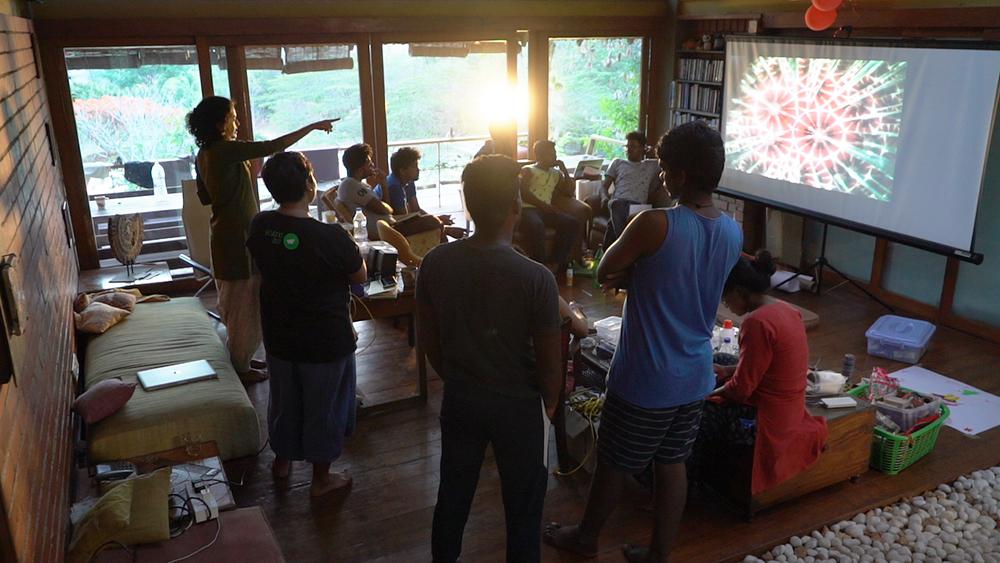
Workshop on Environmental sensors with PLACEARTS,2017 (Tasneem Khan, Arzu Mistry)
Pedagogy
Courses conducted at (Art)Science BLR for Srishti students are aimed at developing technological fluency amongst young artists and designers. We work with students of Contemporary Art Practice (CAP), The Center for Experimental Media and Arts (CEMA), and School of Continuing, Open and Professional Education (SCOPE).
Some of the studios and workshops we have run include: Synthetic Biology for Artists and Designers, Art, Ecology and Technology, Science for Poets, Creative Cartography, Pre-Cinema Toys, Introduction to the Sonic Arts & Introduction to Robotics.
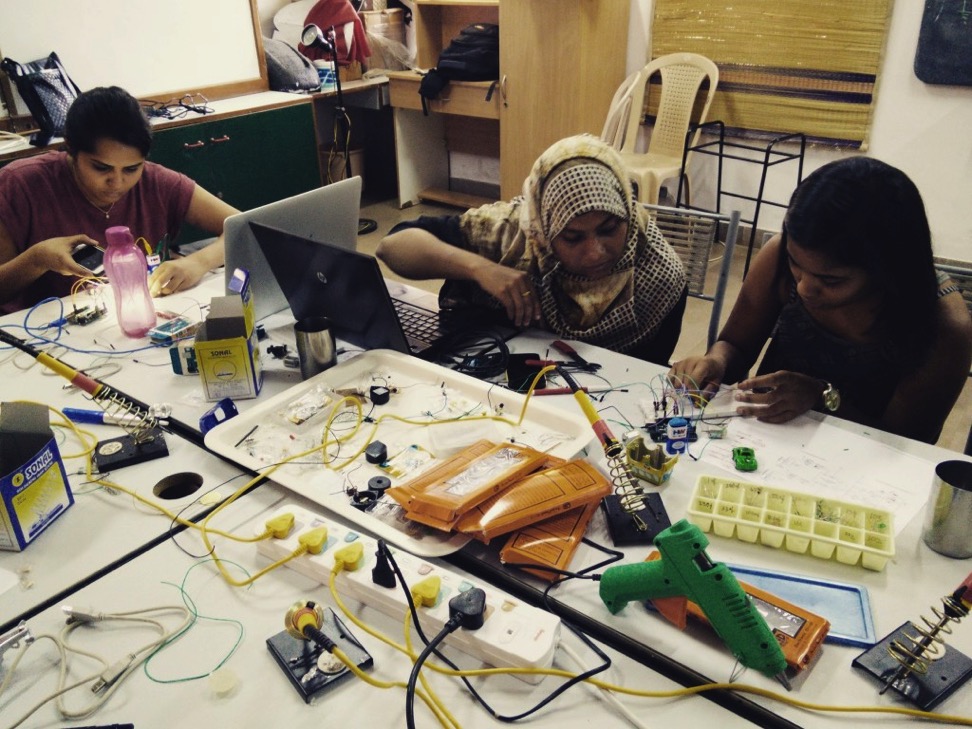
Arduino Summer School for High School teachers and Students,2016
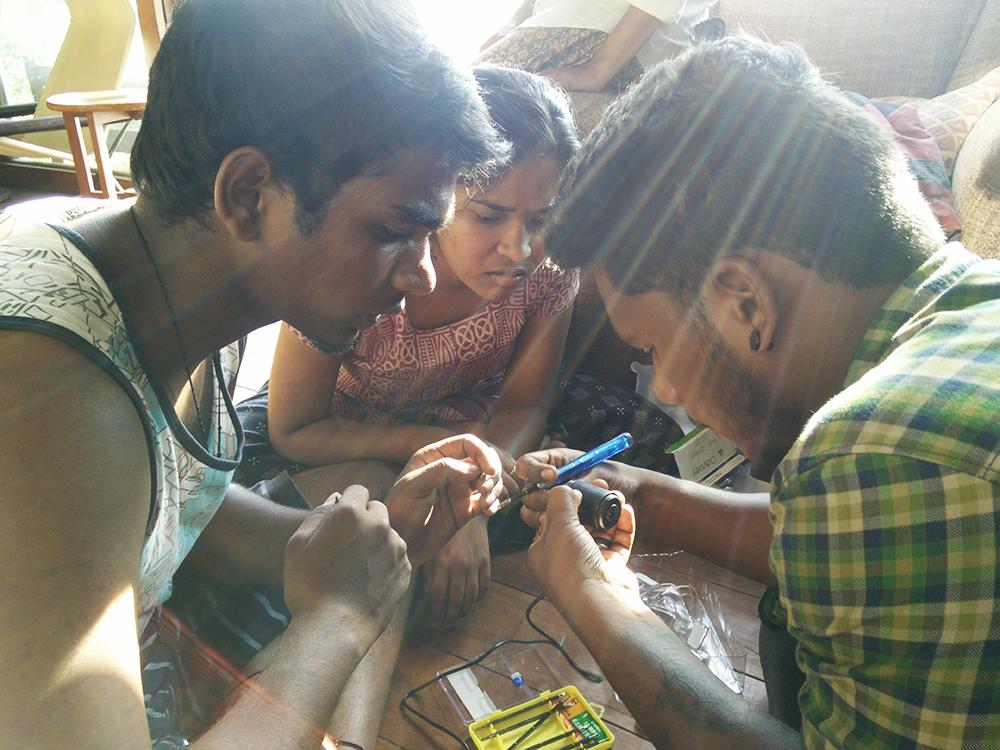
Building a hackteria microscope with the PlaceArts group
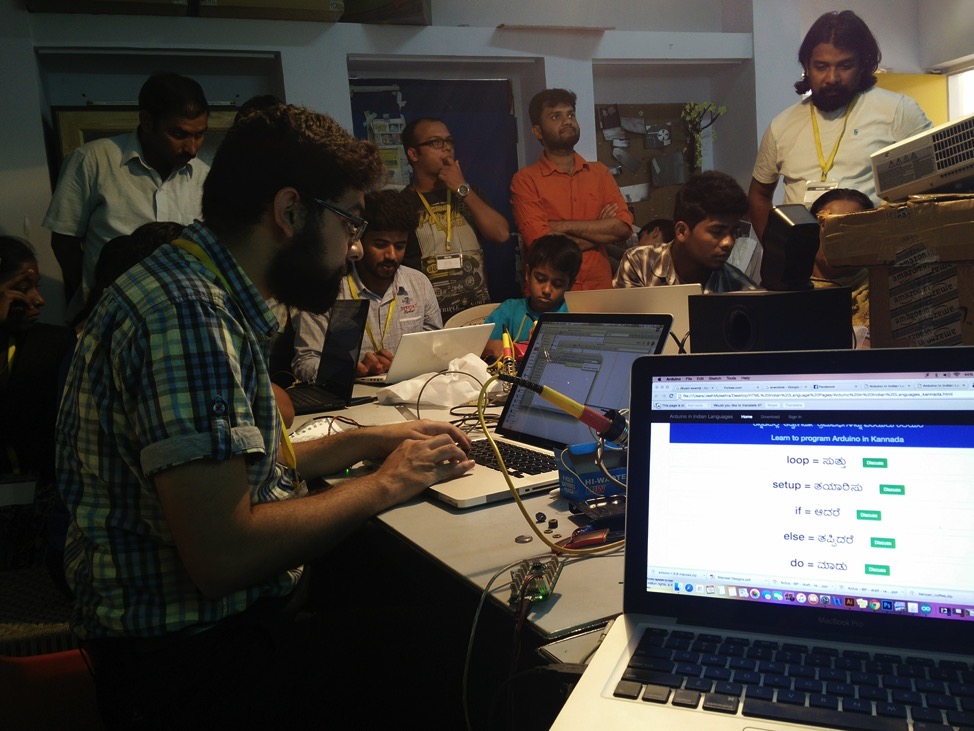
Arduino in Kannada workshop
Artists-In-Residence Program
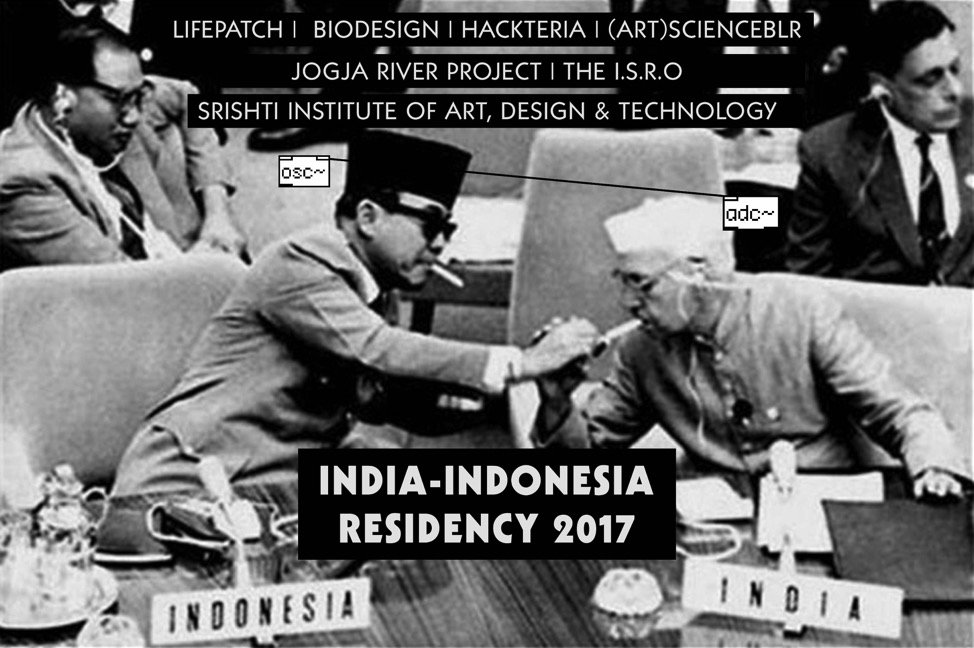
India-Indonesia Artist Exchange program,2017
The A.I.R program at (Art)ScienceBLR hosts 4 residencies each year, inviting international artists to work alongside the community of artists in Bangalore at our laboratory for a period of three months. Besides providing a studio space for artists to work on their projects, we also help the artists to conduct workshops, talks and exhibit their work.
We have hosted artists-in-residence from Indonesia, India , Germany, Switzerland, U.S.A, Norway, Japan and the United Kingdom. Some of our past residents have included Budi Prakosa(ID), Muhammed Dholy(ID),Nova Rachmad Basuki(ID),Alexandra Daisy Ginsberg (UK), Joe Davis (US), James King (UK).
(Art)ScienceBLR also offers scientists the unique opportunity to work on projects in an artistic environment. These interactions between artists and scientists have given rise to some unique projects. Some examples of projects include Biodesign for the Real World (with Dr.Sachiko Hirosue and Dr. Robin Schiebler JP/CH).
We work with funding agencies to facilitate support for production expenses and flights for artists. We provide a studio space and also guest apartments for the duration of the stay in Bangalore.
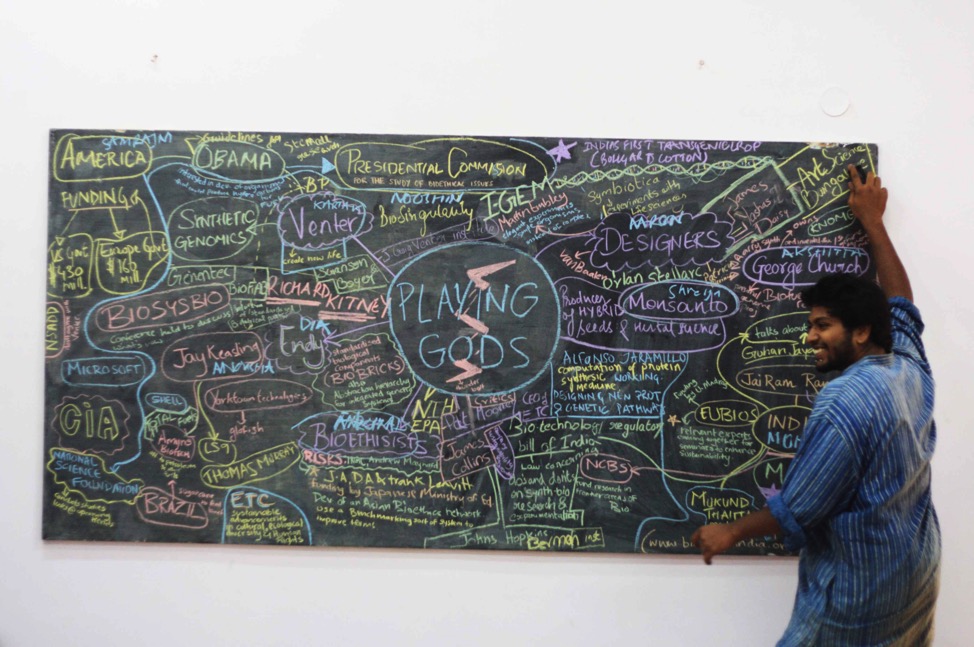
Introduction to Synthetic Biology, summer workshop by Alexandra Daisy Ginsbery, James King and Yashas Shetty (2010)
Field Trips
Our Field trips are expeditions to wild spaces with an intent to gather environmental data. These trips are primarily testing grounds for new sensors and other environmental tools. The secondary objective of a Field Trip is to expose a participant to working as an artist across diverse ecosystems using techniques which develop radical attentiveness to one’s environment.
These techniques of identifying and capturing observations in nature are useful for the creative artist to develop one’s own personal practice. Heightened appreciation of one’s natural environment is often an antidote to the dullness of working in a confined laboratory space and open’s the participants perception on the relation between technology and nature. Some of our past themes for Field Trips have been:
ISLANDS (2014-2015)
Andaman & Nicobar Islands along with ANET (Andaman & Nicobar Environment Team)
The Maldives along with Earth Colab
SWAMPS (2017)
Andaman & Nicobar Islands along with ANET (Andaman & Nicobar Environment Team)
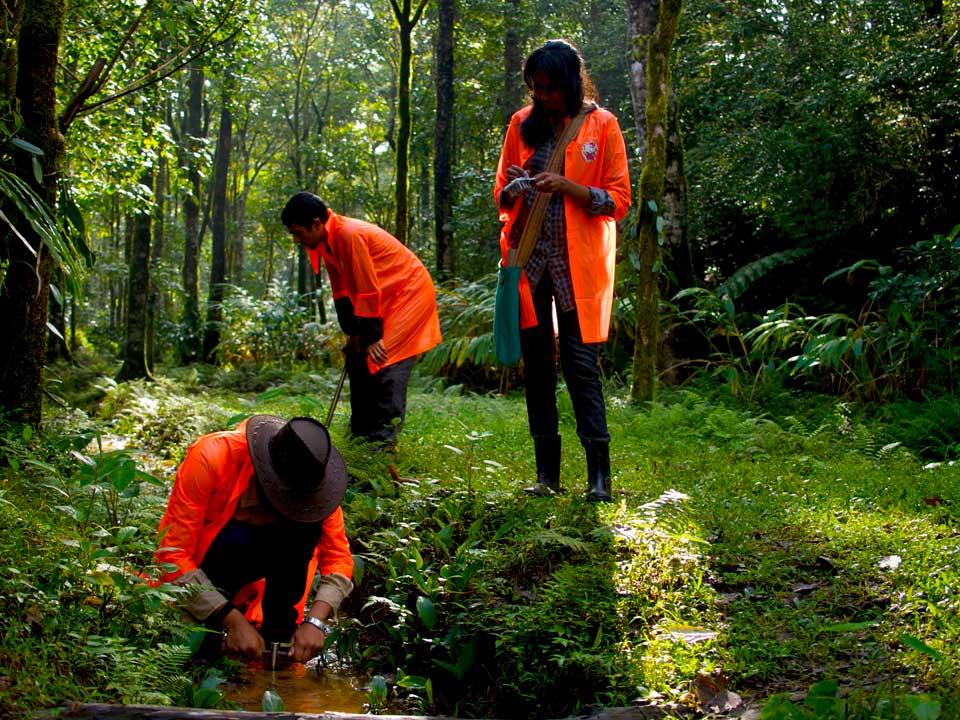
Extracting DNA from soil, Coorg Rainforest 2011
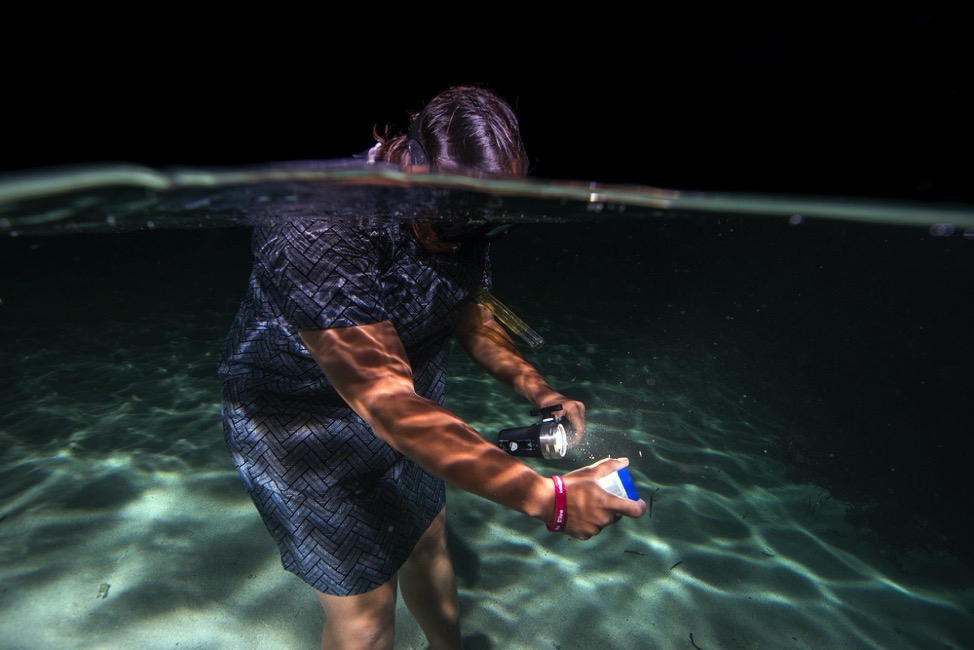
Shreyasi Kar testing underwater microphones for the Indian Sonic Research Organisation,2015
Hardware and Software
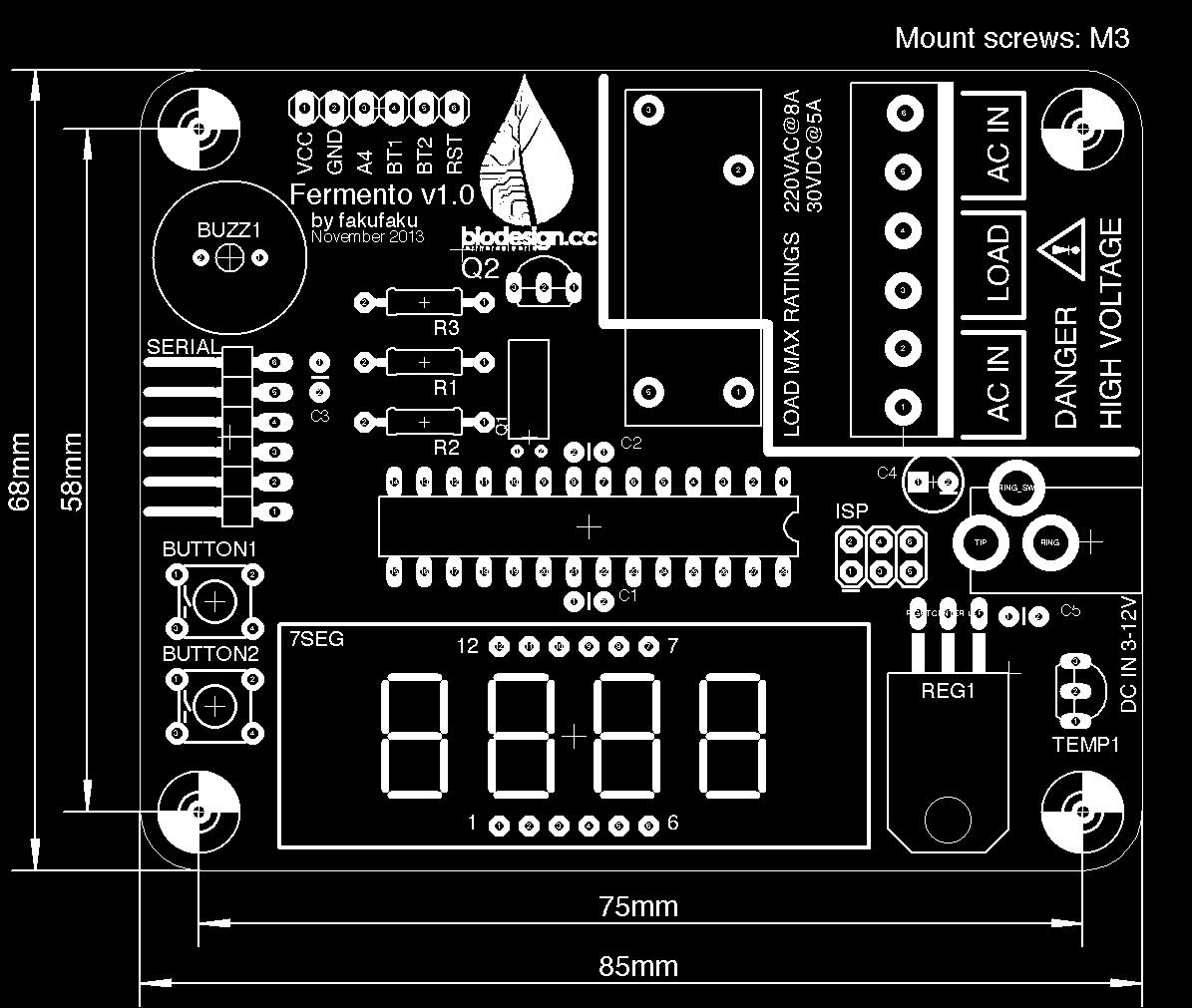
Fermento-An open source-incubator for Fun and profit(2013). Robin Schiebler for the Biodesign for the real-world project
Developing open source hardware and software projects and sharing them is an integral part of the pedagogical approach at (Art)ScienceBLR. You can download hardware and software from the github of associated projects and the (Art)ScienceBLR github.
https://github.com/BioDesignRealWorld
https://github.com/artscienceBLR?language=c
https://github.com/theisro
The Hackteria wiki has many contributions from (Art)ScienceBLR:
https://www.hackteria.org/wiki/Main_Page
Achievements
Over the years, artists working at the laboratory have produced critically acclaimed pieces of art work, hardware and software. Art produced at (Art)ScienceBLR has been exhibited at galleries and exhibitions around the world. Our research work has also been published in peer reviewed scientific journals.
Artists working at the lab are the recipients of prestigious awards including those at Ars Electronica, MIT and Harvard. We have conducted research along with likeminded hackerspaces around the world - especially in South East Asia and Europe. These institutions share the same values of providing open access to open technologies.
Selected Awards
Over the years (Art)ScienceBLR has won the following awards:
Honorary mention in the Hybrid Arts category at Ars Electronica (2010 & 2012)
Best Human Practice at the International Genetically Engineered Machines Competition at MIT, USA (2011)
Silver Medal at BIOMOD, Harvard University (2011)
Bronze Prize at the International Genetically Engineered Machines Competition at MIT, USA (2009)
Selected Exhibitions
The research and artwork created at (Art)ScienceBLR has been presented at numerous exhibitions, both in India and internationally. Exhibitions are an important way for us to disseminate work and communicate with our communities. The venues have ranged from galleries, science museums and festivals. Some of these are:
- Open Labs, Science Gallery Dublin, Ireland, 2019
- Hackterialab, Yogyakarta, Indonesia, 2014
- Grow Your Own, Science Gallery Dublin, Ireland, 2013
- Avalon, Onsite at OCAD, Toronto, Canada, 2012
- India Art Fair, Delhi, India, 2012
- Ars Electonica Festival, Linz, Austria, 2012
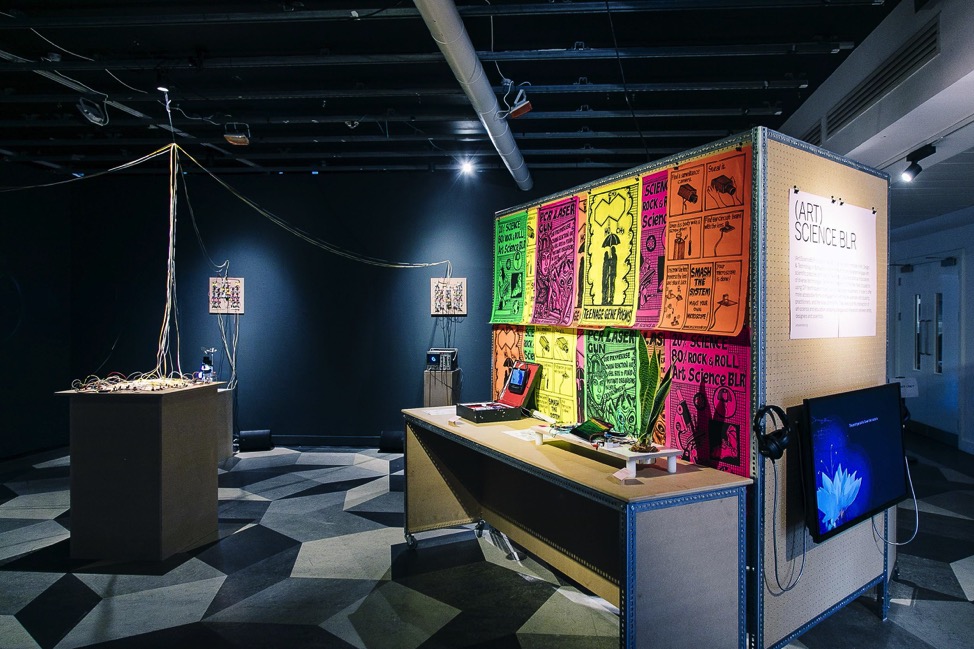
(Art)ScienceBLR at the Open Labs exhibit at the Science Gallery Dublin, 2019
Publications
We also disseminate our work through print publications like comic books, handbooks and instructional manuals. Some of these can be downloaded here.
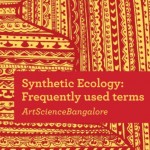
Synthetic Ecology: Frequently used terms (2010)
Download the Synthetic Ecology comic book here:
http://dl.dropbox.com/u/6072669/IGEM%20Comic%202010%20new.pdf
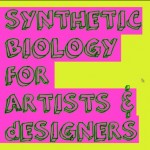
Synthetic Biology for Artists & Designers (2009)
Download link:
http://www.hackteria.org/wordpress/wiki/images/a/a1/Handbook.pdf
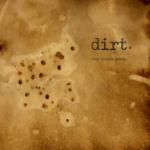
Dirt: A primer for extracting DNA from Soil (2011)
Download link
https://www.dropbox.com/s/wsj7hsz2rr81a2v/Handbook%202011.pdf?dl=0
Opportunities
(Art)ScienceBLR offers multiple opportunities for anyone interested in our research work, to participate in projects, workshops and residencies, or just to visit the lab to tinker and interact with an open community of practitioners and ideas.
If you wish to support, participate, volunteer and contribute to the laboratory, please write to artscienceblr@gmail.com .
To find out more and keep yourself updated with the latest events, please visit our website at: http://www.artscienceblr.org
